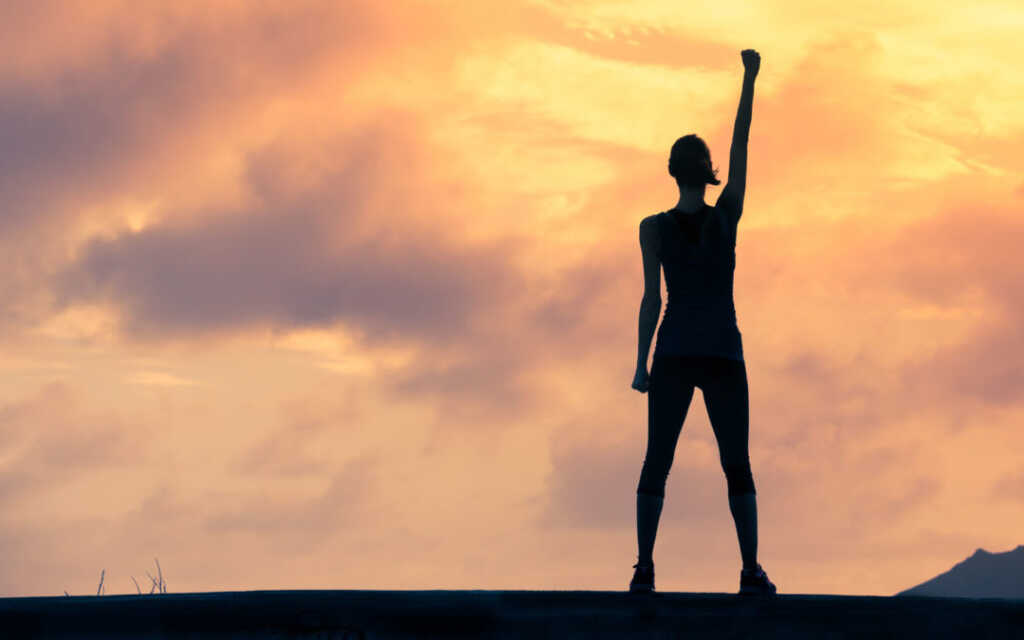Courage is a word that is used to describe when a person tries to overcome his fears of something that he perceives to be dangerous or else his discomfort from something that he perceives to be limiting, irritating or embarrassing. The first concern revolves around physical conflict, war, dangerous outings and disease. The second concern revolves around personal challenges: overcoming a handicap, doing something that either you or the people around you have doubts that you can do. For most people in modern Western society, the second category is the one that they are most likely to have to confront. Going on for advanced degrees after High School, when there have been no successful role models for this pathway among parents or relatives. Women and minorities entering professions within which there has been discrimination. Trying to continue to live one’s life somewhat normally after a psychological trauma.
Courage is something that someone has to muster up to a certain extent in order for it to be effective. Courage is something that would normally be associated with a passionate commitment. But what happens if one is living in an environment where there is little organic stimulation to bring out a backdrop in the environment that is conducive to the stimulation of passion. If courage is supposed to have a passionate base, it becomes more difficult to elicit courage in a modern technological living environment. In a living environment where organic stimuli are scarce, it becomes difficult to muster up enough passion to have a good base for courage.
This doesn’t mean that people today are incapable of doing things that appear to be brave. It just means that they are not being done as an expression of courage. Courage means overcoming one’s fears in order to do something that one feels they have to do or that they want to do. Many people are so numb today that they are incapable of using fear as a vehicle for pulling them out of their numbness. The apparently brave actions that are manifested today, certainly with regard to physical danger, are more likely to be tension pocket actions designed to shock a person out of his numbness. Actions with a high amount of risk to oneself, either physically or psychologically, that are performed in order to simply feel alive. Many times today, people are so numb that they are oblivious to the real danger entailed in certain actions or to any shame or doubt that they might normally feel in such a circumstance.
For instance, does it take courage to be a mass murderer. Heaven only knows that in the United States, mass murders are becoming so common, that the rest of us non-murderers are in a psychological space where we just accept the fact that mass murders are becoming a part of everyday life. Does it take courage to go around and spray innocent people with bullets? Particularly, when the murderer has to know he is going to be killed or put in prison for life. Perhaps, the murderer doesn’t care if he is going to die. Many of them kill themselves when they are done with their spree. Such people are obviously not afraid of death. They embrace it, and for the moments right before they kill themselves, they probably feel more alive, more un-numb than they every have felt before in their lives.
This represents an extreme case of the kind of high risk-taking attitudes and activities that more and more people are immersed in today. Are these attitudes and activities based on a kind of courage? I think probably not. Courage requires a kind of reflexive awareness that simply is not present in most people today. When one is numb, he simply performs like a robot. A robot goes through his existence without having the kind of reflexive awareness that would make him conscious of risk and afraid of negative consequences. And the same would be true for mass murderers and other law-breaking criminals in today’s society. And also just normal people taking up personal challenges. Are people engaged in extreme sporting activities like mountain climbing being courageous? Or are they just trying to do something that will shock them out of their numbness?
And does it take courage to fire missiles at an enemy, when one is in a safe location free of any direct reprisals? It seems to me, that courage is not involved in such a remote mediated aggression. Where is the risk to the person firing the missile?
At any rate, one thing to consider is that the opposite of courage is not always cowardice. In cowardice, one succumbs to the fears that one tries to overcome with courage. However, sometimes when we think of courage, the opposite that should spring to mind is numbness. Numbness is the state that has to be overcome with courage in today’s world. If only there is the means in today’s world to elicit such courage.


Artículos Relacionados: